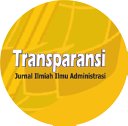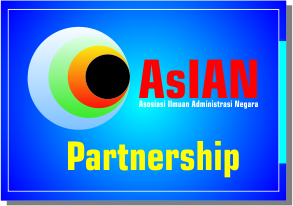Green Accounting dalam Kebijakan Fiskal Pemerintah: Studi Analisis atas Anggaran Berbasis Lingkungan
DOI:
https://doi.org/10.31334/transparansi.v8i1.4793Keywords:
green accounting, environmental budgeting, fiscal policy, sustainable development, government accounting, akuntansi hijau, penganggaran lingkungan, kebijakan fiskal, pembangunan berkelanjutan, akuntansi pemerintah,Abstract
(Green Accounting in Government Fiscal Policy: An Analytical Study on Environmental Budgeting) This study aims to analyze the implementation of green accounting in Indonesia’s fiscal policy, particularly through environmentally-based budgeting approaches. Green accounting, as part of efforts to integrate environmental aspects into accounting systems and fiscal decision-making, is considered vital to achieving sustainable development. This research employs a descriptive qualitative method with a document analysis approach, examining regulations, government financial reports, and environmental budget documents from relevant ministries and agencies over the past five years. The findings reveal that although the government has adopted the green budgeting concept in its fiscal policy, implementation still faces challenges such as limited environmental performance indicators, lack of institutional integration, and suboptimal reporting of environmental impacts in financial statements. The study recommends regulatory harmonization, capacity building for human resources, and the development of standardized environmental accounting reporting systems to enhance the effectiveness of green budgeting in simultaneously supporting fiscal and environmental goals. Abstrak Penelitian ini bertujuan untuk menganalisis implementasi green accounting dalam kebijakan fiskal Indonesia, khususnya melalui pendekatan penganggaran berbasis lingkungan. Green accounting, sebagai bagian dari upaya untuk mengintegrasikan aspek lingkungan ke dalam sistem akuntansi dan pengambilan keputusan fiskal, dianggap penting untuk mencapai pembangunan berkelanjutan. Penelitian ini menggunakan metode kualitatif deskriptif dengan pendekatan analisis dokumen, mengkaji peraturan, laporan keuangan pemerintah, dan dokumen anggaran lingkungan hidup dari kementerian dan lembaga terkait selama lima tahun terakhir. Temuan penelitian menunjukkan bahwa meskipun pemerintah telah mengadopsi konsep anggaran hijau dalam kebijakan fiskalnya, namun dalam implementasinya masih menghadapi berbagai tantangan seperti terbatasnya indikator kinerja lingkungan hidup, kurangnya integrasi kelembagaan, dan belum optimalnya pelaporan dampak lingkungan hidup dalam laporan keuangan. Studi ini merekomendasikan harmonisasi peraturan, peningkatan kapasitas sumber daya manusia, dan pengembangan sistem pelaporan akuntansi lingkungan yang terstandardisasi untuk meningkatkan efektivitas penganggaran hijau dalam mendukung tujuan fiskal dan lingkungan secara bersamaan.References
Bartelmus, P., Green Accounting for a Sustainable Economy. United Nations Policy Brief No. 5, 2001.
Burritt, R. L., & Schaltegger, S., Contemporary Environmental Accounting: Issues, Concepts and Practice. Greenleaf Publishing, 2000.
Gray, R., Owen, D., & Adams, C., Accounting and Accountability. Prentice Hall, 1996.
Kementerian Keuangan Republik Indonesia, Nota Keuangan dan RAPBN 2023. Jakarta, 2022.
Kementerian Keuangan Republik Indonesia, Laporan Kinerja Kementerian Keuangan 2020. Jakarta, 2020.
OECD, Green Budgeting: A Way Forward. OECD Journal on Budgeting, vol. 20, no. 1, pp. 1–30, 2020.
Puspita, A. S., & Riyadi, S., Pengaruh Green Budgeting terhadap Akuntabilitas. JAKD, vol. 15, no. 2, 2020.
Republik Indonesia, Peraturan Pemerintah No. 71 Tahun 2010. Jakarta, 2010.
UNEP, Green Economy and Trade. UNEP, 2012.
UNEP, Green Fiscal Policy and Reform. UNEP, 2016.
Bappenas, Panduan Climate Budget Tagging. Jakarta, 2021.
World Bank, Integrating Environmental Concerns. The World Bank, 2019.
Website :
Downloads
Published
Issue
Section
License

This work is licensed under a Creative Commons Attribution-ShareAlike 4.0 International License
Please find the rights and licenses in Transparansi : Jurnal Ilmiah Ilmu Administrasi By submitting the article/manuscript of the article, the author(s) agree with this policy. No specific document sign-off is required.
- License
The commercial use of the article will be governed by the Creative Commons Attribution license as currently displayed on Creative Commons Attribution-ShareAlike 4.0 International License.
2. Author(s)' Warranties
The author warrants that the article is original, written by stated author(s), has not been published before, contains no unlawful statements, does not infringe the rights of others, is subject to copyright that is vested exclusively in the author and free of any third party rights, and that any necessary written permissions to quote from other sources have been obtained by the author(s).
3. User Rights
Transparansi : Jurnal Ilmiah Ilmu Administrasi spirit is to disseminate articles published are as free as possible. Under the Creative Commons license, Transparansi : Jurnal Ilmiah Ilmu Administrasi permits users to copy, distribute, display, and perform the work for non-commercial purposes only. Users will also need to attribute authors and Transparansi : Jurnal Ilmiah Ilmu Administrasi on distributing works in the journal and other media of publications.
4. Co-Authorship
If the article was jointly prepared by more than one author, any authors submitting the manuscript warrants that he/she has been authorized by all co-authors to be agreed on this copyright and license notice (agreement) on their behalf, and agrees to inform his/her co-authors of the terms of this policy. Transparansi : Jurnal Ilmiah Ilmu Administrasi will not be held liable for anything that may arise due to the author(s) internal dispute. Transparansi : Jurnal Ilmiah Ilmu Administrasi will only communicate with the corresponding author.
5. Miscellaneous
Transparansi : Jurnal Ilmiah Ilmu Administrasi will publish the article (or have it published) in the journal if the article’s editorial process is successfully completed. Transparansi : Jurnal Ilmiah Ilmu Administrasi editors may modify the article to a style of punctuation, spelling, capitalization, referencing and usage that deems appropriate. The author acknowledges that the article may be published so that it will be publicly accessible and such access will be free of charge for the readers as mentioned in point 3.
Every accepted manuscript should be accompanied by "Copyright Transfer Agreement"prior to the article publication.











